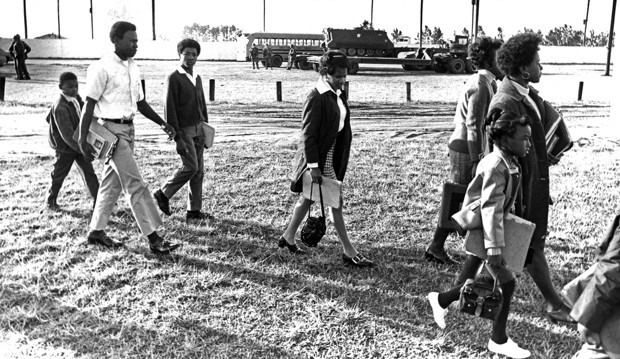Primary tabs
The 100-Year-Old Penalty for Being Black
By Tamvi Misra
Inherited racial disadvantage, more than poverty, explains why generations of African Americans have not reached economic parity with whites.It’s 1880. The Civil War ended 15 years ago. Three years ago, federal troops withdrew from the South. Now, children of black and white workers of similar economic standing are able to climb up the economic ladder at the same pace. So by the start of the next decade, the median black worker earns more than around 30 percent of the nation’s labor force.
In the paper, Collins and Wanamaker set out to understand the mechanisms that drive a wedge between the incomes of blacks and whites from one generation to the next. Their big finding is this: Between 1880 and 2010, whites showed much higher rates of upward mobility than blacks—even if their parents started from the same economic position. “There is a specific penalty for black people, which is independent of whatever income their fathers earn,” Wanamaker tells CityLab. “And that has been constant over 100 years.”
History provides some evidence of what happened in this span of time. After the Civil War, the promise of land as compensation to former slaves never panned out. Freed slaves continued to work on farms, primarily in the South, that they did not own and under terrible conditions. Those who did own land often had it taken from them through deception and violence.
Click Here to read the full article.
























